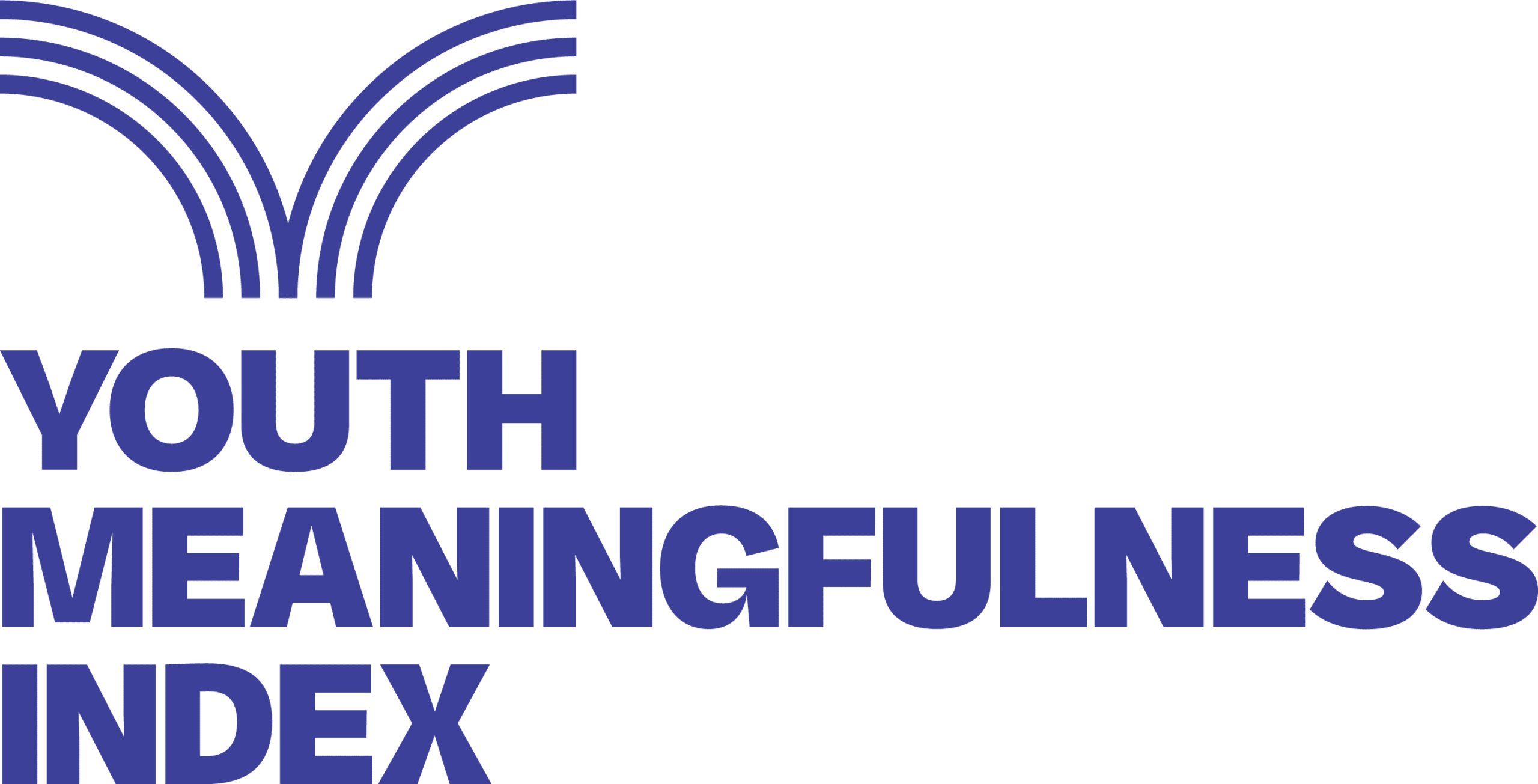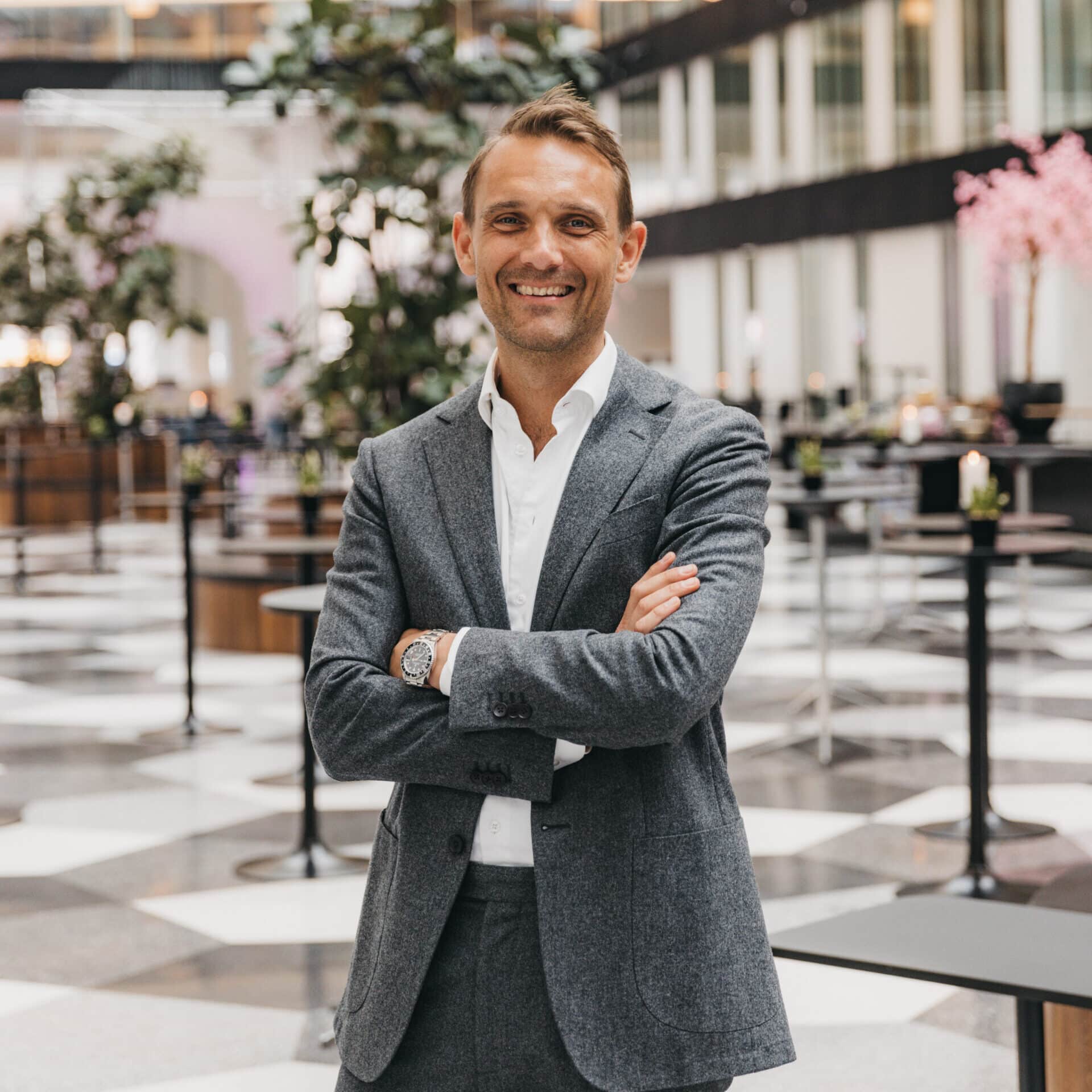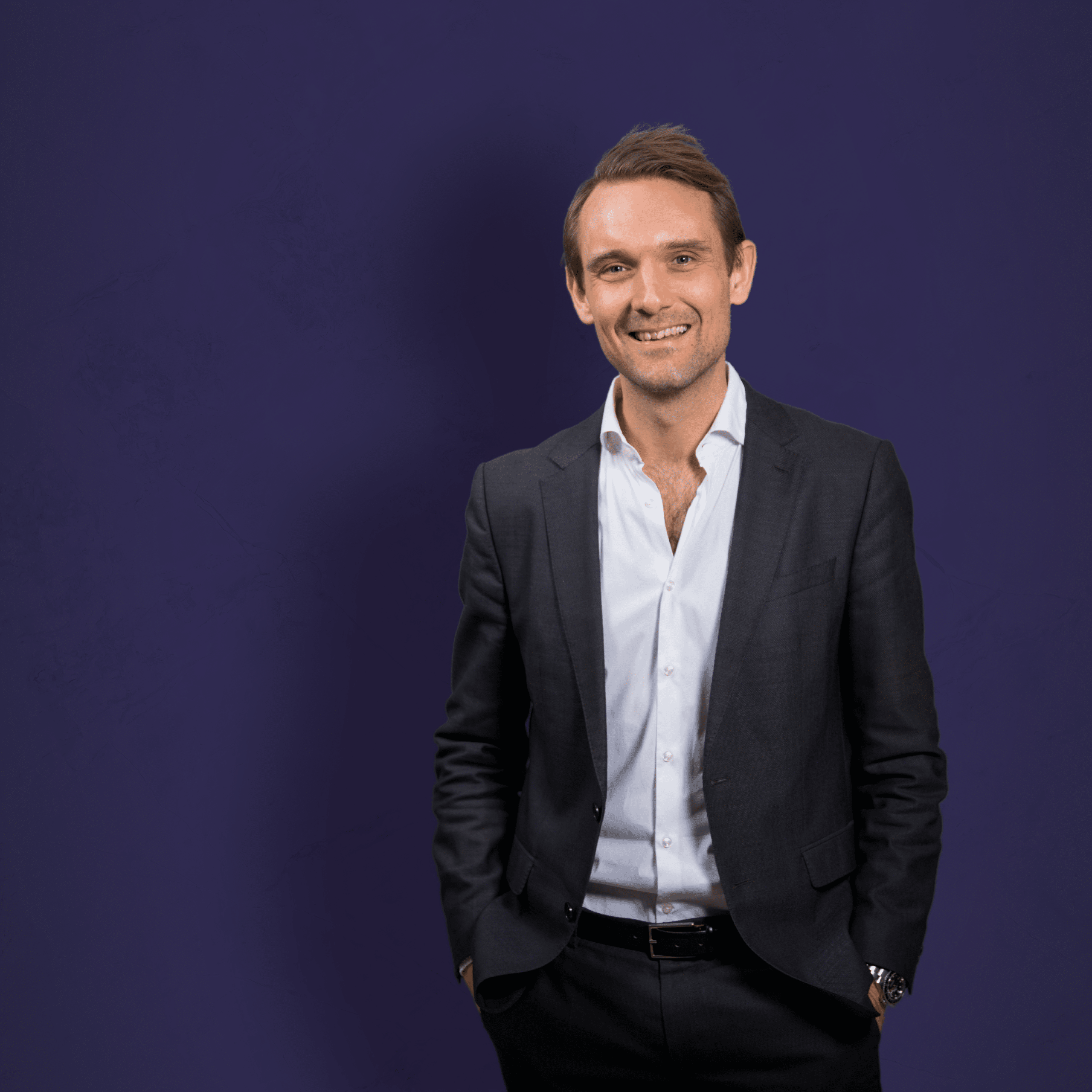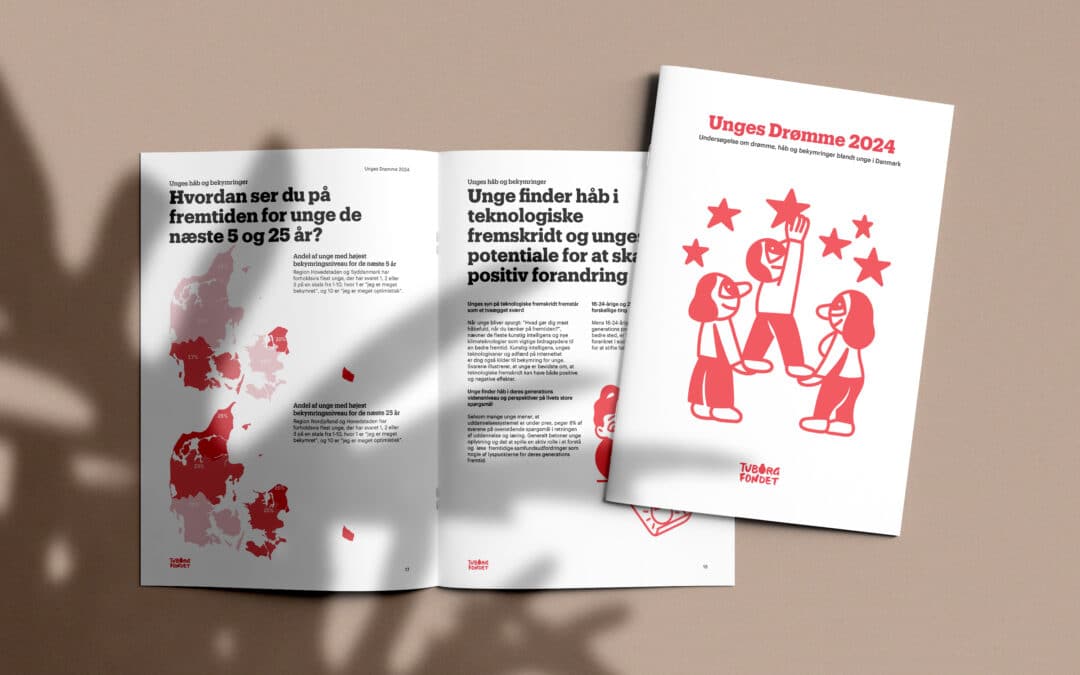
The Dreams of the Youth 2024
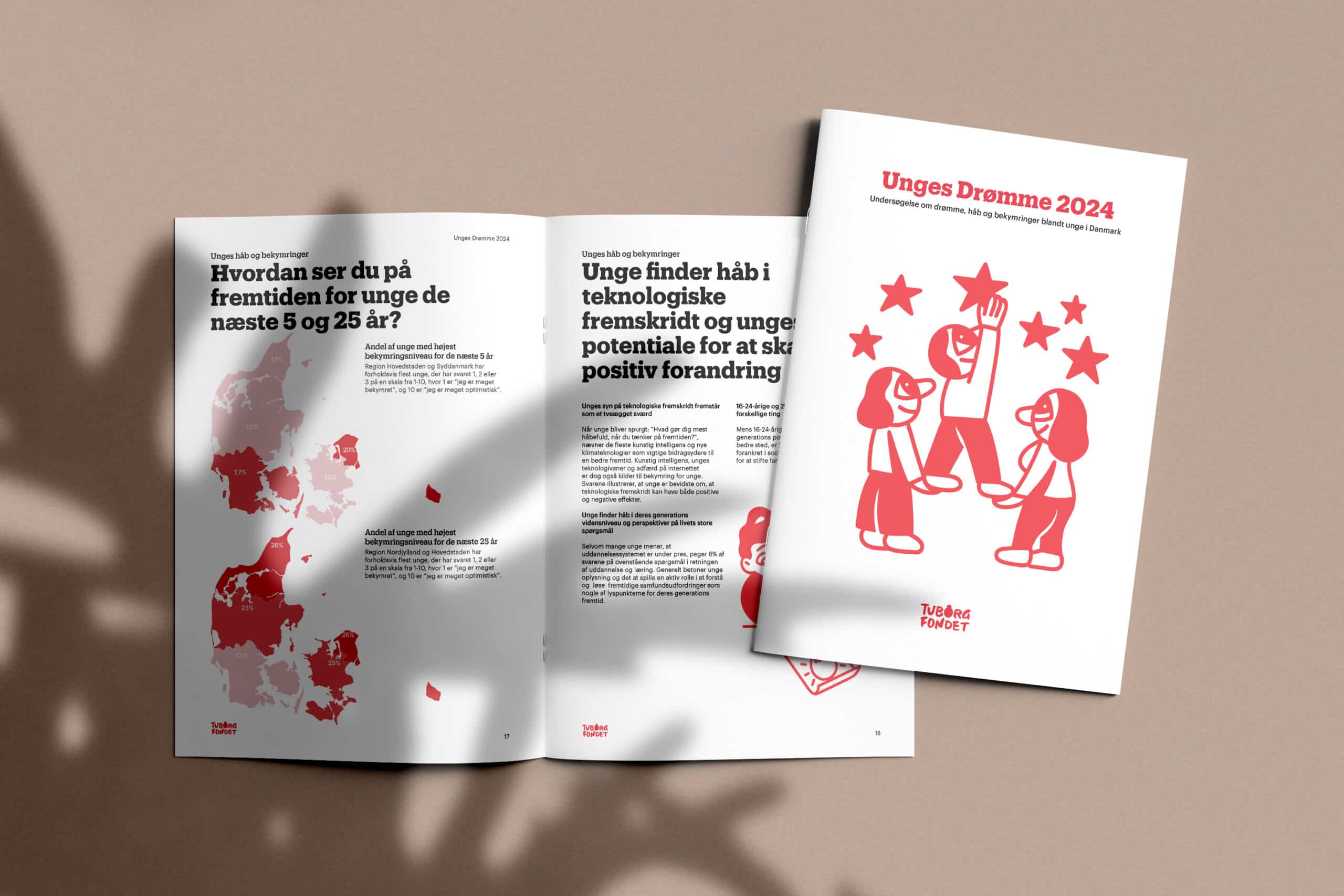
Meaningful Societies
The Dreams of the Youth 2024
Voluntās has supported The Tuborg Foundation in conducting a comprehensive and representative study titled “Unges Drømme 2024” (The Dreams of the Youth 2024), providing deep insights into the dreams, hopes, and concerns among 1,507 young Danish people aged 16 to 29.
Key Findings:
- Young people dream of starting a family: When asked openly, their main dreams revolve around having children, finding a life partner, and creating a loving home. Supporting this conclusion, 64% of respondents ranked “spending time with close relationships” as either their first or second most meaningful activity in life.
- Young people want less pressure and perfection in education: Many young people dream of an inclusive education system with less performance pressure. When asked broadly to suggest one initiative for a hopeful future, most focus on rethinking education to reduce stress and better prepare them for life, including teaching practical skills like personal finance, taxes, and digital literacy.
- Young people are concerned about climate and war: The climate crisis emerged as the top concern for 27% of respondents, followed by fears of war and global instability (17%)
-
Mental well-being and welfare are most important to prioritize: When asked about various areas, 62% of young people believe that “Mental well-being and welfare” should be the top priority. Additionally, just under half of young Danes consider the most important areas to be “Human rights” (48%), “Physical well-being” (46%), “Climate change, sustainability, and biodiversity” (46%), and “Education and research” (44%).
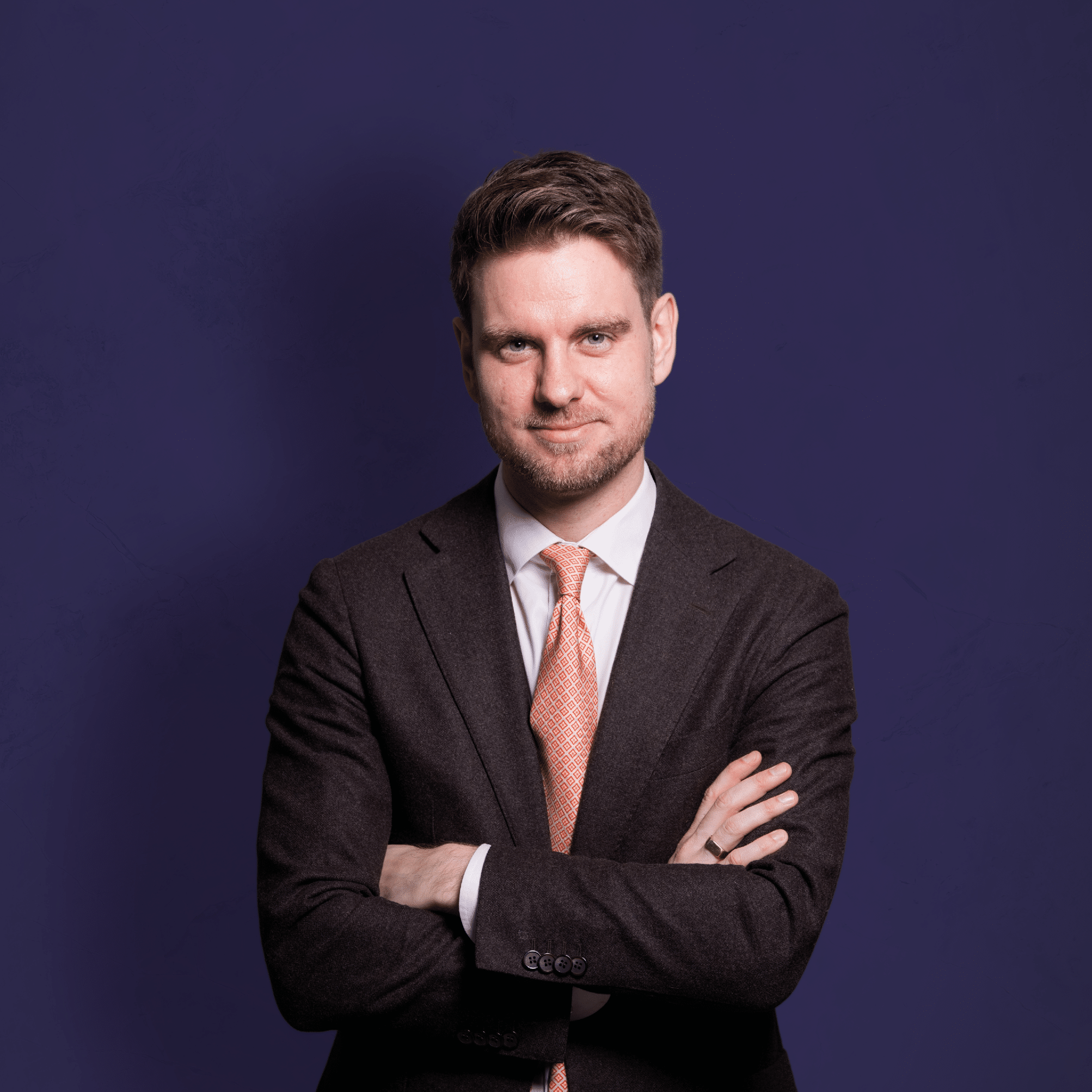
Nicolai E. E. Iversen

Jacob Mittun

Rasmus Hjalgrim
Situation
The Danish foundation, Tuborgfondet, wanted to better understand the aspirations and concerns among young people across the country to shape initiatives that truly resonate with them. They partnered with Voluntās to conduct an extensive survey involving over 1,500 young people between the ages of 16 and 29, aiming to explore their dreams for the future, the issues that matter most to them, and how these vary across different demographics.
Challenge
The challenge lay in ensuring that the findings accurately represented the diverse voices of Danish youth while also uncovering the deeper patterns in their hopes and concerns. There was a need to gather not only quantitative data but also meaningful qualitative insights to provide a full picture of their perspectives.
Solution
Voluntās developed a research design that included both survey questions and open-ended responses, allowing young people to express their individual views. To maintain neutrality, Tuborgfondet’s name was kept anonymous during data collection, ensuring the responses were free of potential bias. With data analysis and in-depth interpretation, Voluntās provided a clear, representative narrative of what the future looks like to Danish youth.
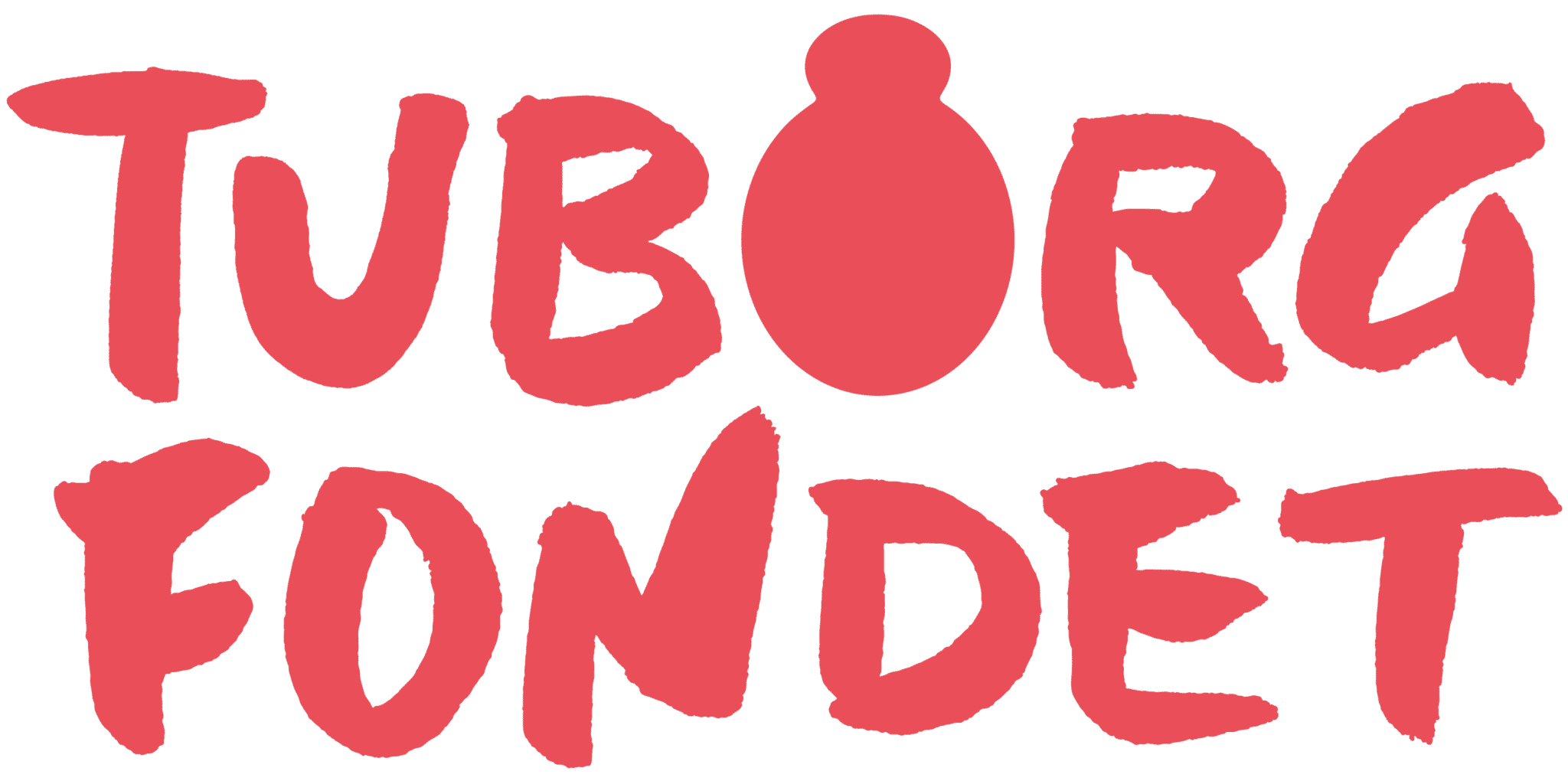
The Tuborg Foundation provides opportunities for young people to collectively create a hopeful and sustainable future. The Tuborg Foundation was established in 1931 to benefit society, with a particular focus on supporting Danish businesses. Over time, this purpose has been translated into concrete actions, with respect for both the founder’s intent and the current societal challenges and opportunities that shape the foundation’s work.

Follow us on social media





